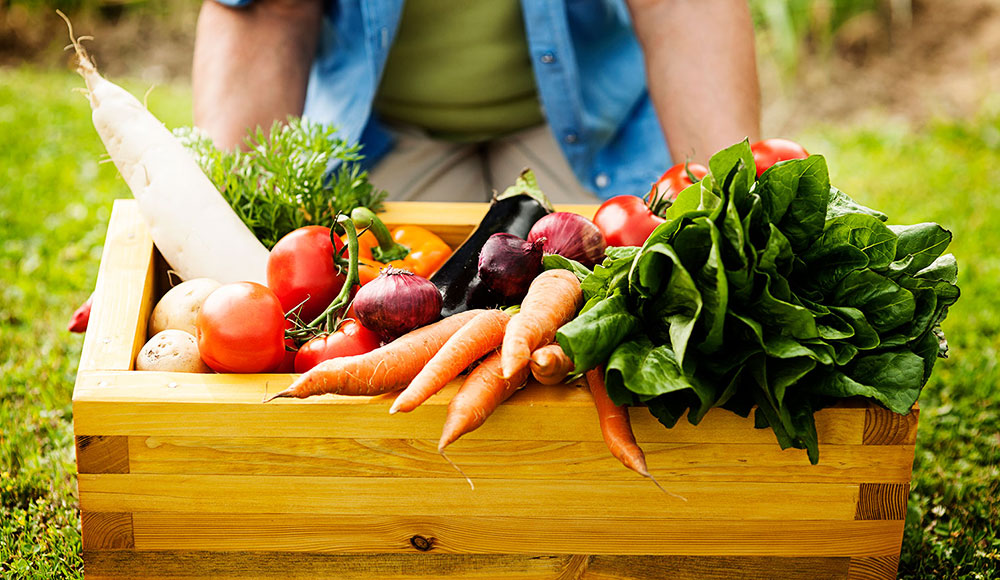Nothing relates to homely-grown legumes. When you start your individual meals, the quality and character far exceed anything you can purchase at the market. now it’s possible to have your own legendary garden with these easy 9 Essential Tips for Starting a Vegetable Garden
To collect the TASTIEST legumes & veggies, try these easy house vegetable garden tips and tricks through the growing period this year:
SO HERE ARE 9 Essential Tips for Starting a Vegetable Garden YOU NEED TO LEAR (OBVIOUSLY)
1 raise High-Yield Legumes
easily Make the most maximum of your time and place by raising vegetables that provide a large yield. At the head of the table are tomatoes, onions, and lettuce.
They require the smallest amount of space and time yet provide the most valuable yields in return.
Melons, winter squash, and pumpkins are fun to grow, however demand much more extra place and provide little.
2 Utilize Quality Soil
Plants bring their nutrients from the soil, therefore you can see that the healthier the soil, the healthier your vegetables will taste when harvest time. One of the most reliable methods to increase soil is by joining organic matter.
You can mulch with all sorts of materials straw, for instance, is great for vegetable gardens. Just be sure to use it on a quiet day and water it thoroughly to weigh it down.
The sprinkler is ideal for this because it falls down on the straw without irritating it. Keep the straw wet till it improves into a cohesive mass in your garden.
3 Plant the Right Crops for Your Region
we recognize not to plant tomatoes, peppers, and corn before the soil heats up, but several inexperienced gardeners ignore the effect of planting correctly for their particular garden place.
Mark the days to development on every seed package or plant tag to recognize if you hold sufficient time in the growing season for the plant to attain full development.
4 Proper Watering your garden
Vegetables profit from a regular watering calendar. Too little water and you may not get vegetables at all.
Too much, and you can sink the roots and destroy the fruit. To guarantee regular watering, utilize a watering nozzle at the soil level to achieve constant moisture to the plants at their roots.
To get the job easy, secure your hose up to a programmable timer. Set it and concentrate on some of the more labor-intensive vegetable gardening news.
<
5 Sun Exposure
few vegetables thrive in a space with less than half a day of sun. If your garden is generating more shade than the sun, you may relocate it to a different space in the garden.
Before starting, have a focus on different zones of your garden during the day to discuss which section receives the most sun. If you take the time to work a garden the proper way, your veggies will pay you.
6 enhance the Flavor
Store-bought vegetables usually lack taste solely because they’re planted in the incorrect period. Vegetables usually fall into two classes: those that like chilly climates and those that require a warm climate.
Planting spinach and kale in the summertime may seem like a solid plan, but the outcomes usually taste sour, and tomatoes won’t turn red in time if you plant them too near to fall. Plant at the right times to reap the best garden results.
7 Companion Planting
Did you recognize that the correct alliance of some plants can cause your vegetables to BE MORE fruitful? Companion planting can assist stop pests, further growth, and even better flavor.
Attempt it out for yourself! This year, plant rosemary with your beans or basil beneath your tomatoes.
8 Bring Veggies Inside?
If you grow a broad mixture of vegetables, your greens (even several types of the same vegetable) will develop at various points across the path of a season.
Be certain to harvest all vegetables at top ripeness – it’s simple to miss a plant one day just to discover some of the tomatoes you’d willingly been expecting had quickly become crumbly. Monitor plants every day and never miss out on perfect timing.
9 Use Trellis or Fence to Save Space
The experts’ vegetable garden planting tips assist you to see! Grow further in less space by moving up rather than out. Garden trellises help plants, such as tomatoes, cucumber, beans, and little melons.
The proper trellis can even increase your garden yield by growing sunlight, helping harvest, and allowing for more comfortable pest control.
